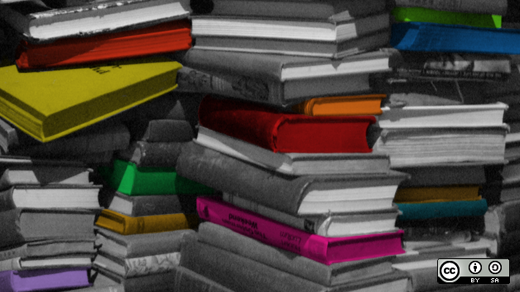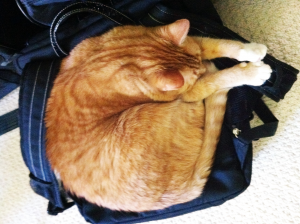Help us protect the commons. Make a tax deductible gift to fund our work. Donate today!

“Free Texts: Sources” by opensourceway is licensed under CC BY-SA 2.0.
Launched in 2018, the Creative Commons Certificate program has trained and graduated 1255 people from 65 countries to date. We celebrate the incredible projects in open knowledge and culture led by the graduates of our program. CC Certificate alumni have used the Certificate course knowledge in a number of ways—read about how alumni have worked on an open access policy for a cultural heritage institution working with digitized art works, or developed open licensed content for a bachelor of business program in Bangladesh and Masters courses in the US. Or read about alumni testimonials here.
In this interview, we were delighted to speak with Jennifer Miller, a graduate of the CC Certificate for Educators with over 10 years experience teaching and doing research in public policy and public management. She is a civic technologist and open knowledge advocate. Here is the Q&A:
Thank you for joining us today. Starting off with a personal question, what’s one thing people might be surprised to learn about you?
I’ve lived in states on four of the five U.S. coasts.
So, you’re quad or tetra-coastal – that’s fun! Alright, switching gears: I know you presented “Open Syllabus: UNESCO Recommendation on Open Science” Lightning Talk for the CC Open Education Platform earlier this year. Tell us a bit more about the Open Syllabus project and how it supports the UNESCO Recommendation on Open Science.
The Open Syllabus for Open Science provides a complete but flexible way for early career researchers to learn about open science. Compared to many of the other materials being developed around open science recently, the course takes an educational approach to thinking about principles rather than focusing on specific tools. It also grounds the whole course in the principle of a human right to science, something that tends to be neglected in our STEM education.
In addition to the UNESCO Recommendation, we were heartened to see the White House Open Access Mandate, requiring that all federally funded research and data in the US be available for the public to freely access and re-use in agency-designated repositories without any embargo or delay after publication. 1 Seems like this is the right time to be focused on Open Science for a number of reasons. What do you expect to see in the field of open science in the future?
It is exciting to see this momentum! I think it’s important for this message to get to educators, and from there to students. In the past, students often learned to use statistical software, data, and peer-reviewed research as part of their studies, but found that these were not accessible to them after graduation. Students could take a “never going to use that after graduation” attitude, and they weren’t entirely wrong. Now, though, software, data, and research publications are widely available for free and under open licenses. With all of the open science resources available now, graduates can’t afford to ignore it; whatever their field, the information is available to their competitors as well.
“With all of the open science resources available now, graduates can’t afford to ignore it; whatever their field, the information is available to their competitors as well.”
In terms of publications, the way some policies use the term open access doesn’t always mean openly licensed, though. One area where this difference is especially important for open science is translation of scientific publications. An article under copyright made available to access for free still requires permission to create derivatives or adaptations, including plain language summaries or translations.

“Firefox naps on computer backpack © 2020” by Jennifer Miller is licensed under CC BY 4.0
What got you into open education and open access in general?
My first experiences with open education and open access were with openly licensed materials for teaching economics and public policy. I was especially impressed with the CORE Economics curriculum, which eliminated textbook costs for my students and presented the material in a way that felt more humane and helped more of my students see their lived experience in the material.
What inspired you to take the CC Certificate for Educators, and was the training useful to you?
I saw a presentation about it at the 2019 Open Education conference. The timing to take the course in early 2020 worked out perfectly!
Has the CC Certificate training been useful to you? If so, in what ways?
Yes, definitely! It has allowed me to confidently share open licensed work in my civic technology activities and advocacy in open science and open education. It also opened my eyes to the wealth of open information available. Resources like the Directory of Open Access Books really open up the world.
Any advice for people who want to get involved in open education or open science?
If you are a scientist or educator who was part of the so-called “Great Resignation,” or wave of retirements associated with the pandemic, consider how open knowledge movements can help you contribute what you’ve learned to a global knowledge commons. The Creative Commons Certificate program can be a great place to start that journey!
Notes
1. While the mandate does not require open licensing, both policies support better sharing of the knowledge we collectively produce and use.
Posted 02 November 2022